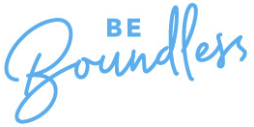Congratulations for being selected to interview! This is your opportunity to not only demonstrate that you are the best candidate for the position but also for you to assess if the employer’s culture/environment/team will be a great fit for you. The interview is your chance to shine!
Recruiters meet a lot of candidates and potential candidates in their day to day roles through job fairs, networking events and drop-ins. This exposure enables them to recognize interviewee behaviors and reactions that are common to successful candidates. Likewise, there are behaviors that make interviewers face palm. Below is a list of some of those behaviors.
- Arriving late to the interview: Prepare to arrive for the interview 15 minutes early. It never fails that you are delayed by traffic when you have just enough time to arrive at your destination. If this happens be sure to call ahead so the recruiter is not waiting for you. However, this still does not reflect well on you as it appears that the opportunity to interview is not a priority. Promptness to interviews is considered an indicator of whether a candidate will arrive to work on time (or at all). Avoid this red flag by planning ahead and leaving early.
- Inappropriate attire: Dress like you want the job and not like you have the job. The recruiter will remember you for years to come in a not so flattering way if you come too casually dressed. Got pets? Invest in a lint roller to ensure you are fur free in your attire. Appropriate interview attire includes business casual or business professional. If you are interviewing for clinical opportunities, such as nursing or dental, you should wear business casual or business professional in lieu of scrubs.
- Unprofessional behavior: Speaking in slang or using poor grammar can reflect negatively on the interviewer(s) perception of your skills. This also provides insight into the way you would interact with clients, customers or patients. You should use every opportunity to demonstrate exceptional communication, customer service and respect as these are skills that will differentiate you from other candidates.
- Distractions: You want the focus of your interview to be your skills and professional experience. No one should accompany you to an interview or the waiting room. Recruiters avoid references to family, children or any protected status, so help them by avoiding that as well in the content you share. Jewelry should be minimal, body piercings removed and tattoos covered. Even if you have seen employees in the workplace proudly display their piercings and tattoos, you don’t have the job yet and it is premature to assume the same rules apply. Do not wear fragrances, as your sense of strength and preference may keenly differ from your interviewer. Don’t be remembered for triggering their allergies.
- Maintain confident and positive body language during an interview: Interviewers watch candidates’ body language throughout an interview. If you are interviewing for a position that requires you to maintain a confident demeanor under stress, the interviewer may be attentive to your body language when you are asked a difficult question. The way you recover from the question speaks volumes about you. It is important to maintain good eye contact with each interviewer as you listen and respond to questions. This simple act conveys your level of confidence in addition to a genuine interest in the position and company. Be aware of behaviors that may be unconscious such as fidgeting, twirling or tossing your hair, nervous laughter, clicking a pen and so on, as they are distracting and do not demonstrate professionalism. Interviewers know you are nervous and probably sympathize with you. However, they are looking for candidates who are calm, articulate and professional under pressure.
- Tone of voice: An interview is not the time to be monotone as the tone of your voice can be equated to your interest in the opportunity. Candidates who are excited and passionate about the field, opportunity and/or company are highly sought after as passion can drive a good candidate with great skills to become a star employee.
- Be prepared for the Interview: Research the company, review their social media, news releases and reports. Know who you will be interviewing with. It is appropriate to ask the individual who schedules the interview to provide the name of the primary individual you will be interviewing with. Be prepared to answer questions in regards to your experiences, skills and goals as it relates to the position. If you are providing a resume with an objective that includes an employer’s name be sure to spell it correctly. If you are applying to several different locations with the same resume by updating the employer’s name, be sure to provide the appropriate resume during the interview. Candidates occasionally leave a competitor’s name on the resume that is provided. This is not only embarrassing when pointed out in an interview/phone screen, but also demonstrates that you are not as invested in the company/position as you previously stated.
- Rude or indifferent behavior: Your interview begins the moment you exit your vehicle if the employer is able to see you. In this day of cameras, you could be watched from the moment you enter the premises. Be respectful to EVERYONE you come in contact with, especially the receptionist. Receptionists and other employees may provide insight into your behavior before the recruiter or hiring manager greeted you.
- Not asking questions: At the end of the interview you will be asked if you have any questions. This is the perfect place to show that you researched the company and are the best candidate. You should include questions that relate to training, expectations or company/departmental goals. However, this is not the time to ask about vacation or salary. Candidates who do not ask questions or ask about vacation and salary too early in the hiring process are perceived as insincere and often passed over. Even if they covered every question you have, you can ask them about the type of person who has excelled in the role or not in the past and what attributed to those successes or pitfalls.
- Speaking negatively about a previous employer or supervisor: Speaking negatively about a previous employer or supervisor could backfire as the individuals you are interviewing with may not know you and could perceive this as a red flag. In smaller regions with fewer employers, the interviewer may also know your previous supervisor and may have a very different perspective of the individual. The employer you are interviewing with may also interpret your response to how you would speak of them if you decided to move to another employer in the future. Always take the high road as a negative response could tell more about you than the former employer/supervisor.
- Poor or confused references: You should reach out to the individual(s) you are listing as references prior to submitting their name with your application. Your references may not remember that you worked for or with them 10 years ago. This raises a red flag as your reference appears to be trying to avoid providing a reference or that you did not leave a lasting impression. Once an individual agrees to provide a reference on your behalf, provide them with a copy of the job description so they can speak effectively to your skills. A strong reference that explains how YOU are qualified for a position can give you an advantage over an equally qualified candidate whose reference stated that they were a great employee and should be considered.
- Failure to maintain or clean your social media profile: Your brand includes the information an interviewer can find through a quick internet search. As a result, social media can become a barrier to obtaining employment. Before applying to positions, scroll through your timeline and remove posts that do not create the image or brand you would like to portray. Also utilize the privacy settings to restrict what public viewers have access to.
- Not being able to articulate why you are the best candidate: Being able to articulate why you are the best candidate for the position requires insight into your strengths, weaknesses and the needs of the employer you are interviewing with. However, if you have not researched the position and company, your lack of preparation will be very evident here. In short, if you are not able to articulate why you are the best candidate the interviewer(s) will not know either.
- Video/Virtual Interviews: Participating in a virtual interview requires MORE preparation as you want to consider room lighting, strong internet connection, limit distractions, device compatibility and being able to troubleshoot any technical issue that may arise on your end during an interview. When you receive the virtual invitation to participate in the interview, look for a reference to the interviewing platform if the interview scheduler did not provide this information. Once the information is obtained, research guides/videos to using the technology so your interview is not the first time you see it. When preparing the room where you will setup your computer/camera, consider a professional background without a mirror as interviewers will be given a glimpse into your life. Position your camera at eye level so you are maintaining great eye contact by looking directly into the camera. You may be tempted to watch the image of the interviewers but resist as the camera is where you maintain eye contact from their point of view. Be aware of and limit potential distractions such as pets, roommates, phones, television, the doorbell, and so on. If you have frequent visitors, consider placing a sign on the door asking visitors not to ring the doorbell or knock.
Recruiters have many stories that make them face palm when they think of them. While they will in no way violate their duty to maintain confidentiality they will most definitely remember every face palm story and candidate. Make sure you are memorable for all the right reasons!





